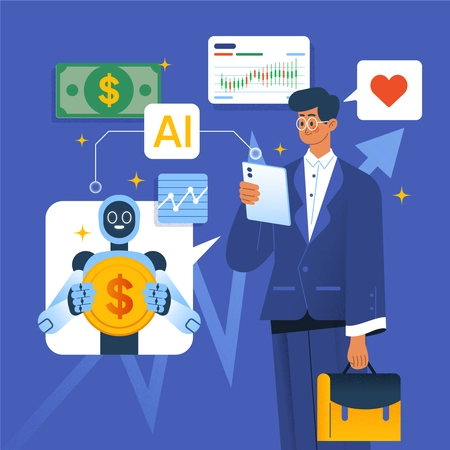You’ve probably heard the term “AI agent” tossed around in conversations about tech or automation. It sounds complex, but the idea is actually pretty straightforward. An AI agent is a system, usually software, sometimes hardware that observes its environment and makes decisions to reach a goal. It’s not just sitting there waiting for instructions. It’s watching, learning, deciding, and doing.
You’ll find AI agents behind the scenes in a lot of places. Think of virtual assistants like Siri or Alexa, recommendation systems on Netflix or Spotify, chatbots that pop up on customer service pages, or even self-driving cars. These aren’t just pre-programmed responses. Good agents learn from what’s happening and get better over time.
Let’s walk through what actually makes them tick.
How AI Agents Work
First, they need to collect data. This could be anything from the temperature in a room to the words you speak into your phone. In a self-driving car, it’s visual data from cameras and sensors. In a chatbot, it’s what you type.
Once they have the data, they start making sense of it. Some agents follow basic rules, while others run complex algorithms and machine learning models. Either way, the goal is the same: understand what’s going on and figure out what to do next.
Then comes the action. This might mean answering a question, moving a robotic arm, turning off a light, trading crypto market or making a trade in the stock market. The point is, the system isn’t just processing information it’s using it to do something.
What makes an AI agent smart is its ability to learn. It takes in results, feedback, and outcomes, and uses that information to improve next time. This feedback loop keeps running, which means the agent isn’t stuck in its original state. It grows with experience.
The Different Flavors of AI Agents
Not all AI agents work the same way. Some are really simple, others more advanced.
- A basic reflex agent reacts to specific inputs with specific actions. Think of a light that turns on when you clap.
- A model-based agent builds a little memory of what’s happened before and uses it to make better choices. This is closer to how a robot vacuum avoids crashing into the same wall twice.
- A goal-based agent starts from a clear objective and chooses steps that lead toward it. Like your phone assistant helping you set a morning routine based on your calendar.
- A utility-based agent looks at all its options and picks the one with the best outcome. This shows up in AI that handles investments or logistics.
- A learning agent keeps evolving. It takes everything it’s experienced and uses it to fine-tune how it works. A good example would be a chatbot that understands you better the more you use it.
Where You’ll See AI Agents in the Wild
They’re in more places than you might think.
In your pocket, there’s a virtual assistant setting reminders and answering questions. On websites, chatbots help with orders or support. On roads, self-driving cars steer through traffic using these agents. Banks use them to catch fraud and automate trading. Hospitals are starting to rely on them to assist in diagnosis or even surgery planning. In your home, AI helps control lighting, heating, security, and energy use. You don’t have to do much; they just learn your preferences over time.
What Still Needs Work
Not everything about AI agents is polished. They raise real concerns.
They depend heavily on data. That brings up questions about privacy and security, especially when personal info is involved. Many agents also reflect the bias in the data they were trained on, which means they can make unfair or even harmful decisions. Their performance drops when the data is low quality or missing. And then there’s the energy use. Some of the more advanced systems eat up a lot of computing power, which means high costs and environmental impact.
What’s Next
AI agents aren’t just staying in customer service or smart homes. They’re becoming more conversational, more human in how they interact. They’re moving into robots, factories, public planning, and maybe one day, into the way governments make decisions.
What matters now is how we design and guide these systems. They’ll keep getting smarter, more independent, and more capable. But they’re only as good as the people who build and use them.
So if you’re wondering whether AI agents are the future the short answer is yes. But it’s not just about the tech. It’s about how we decide to use it.
